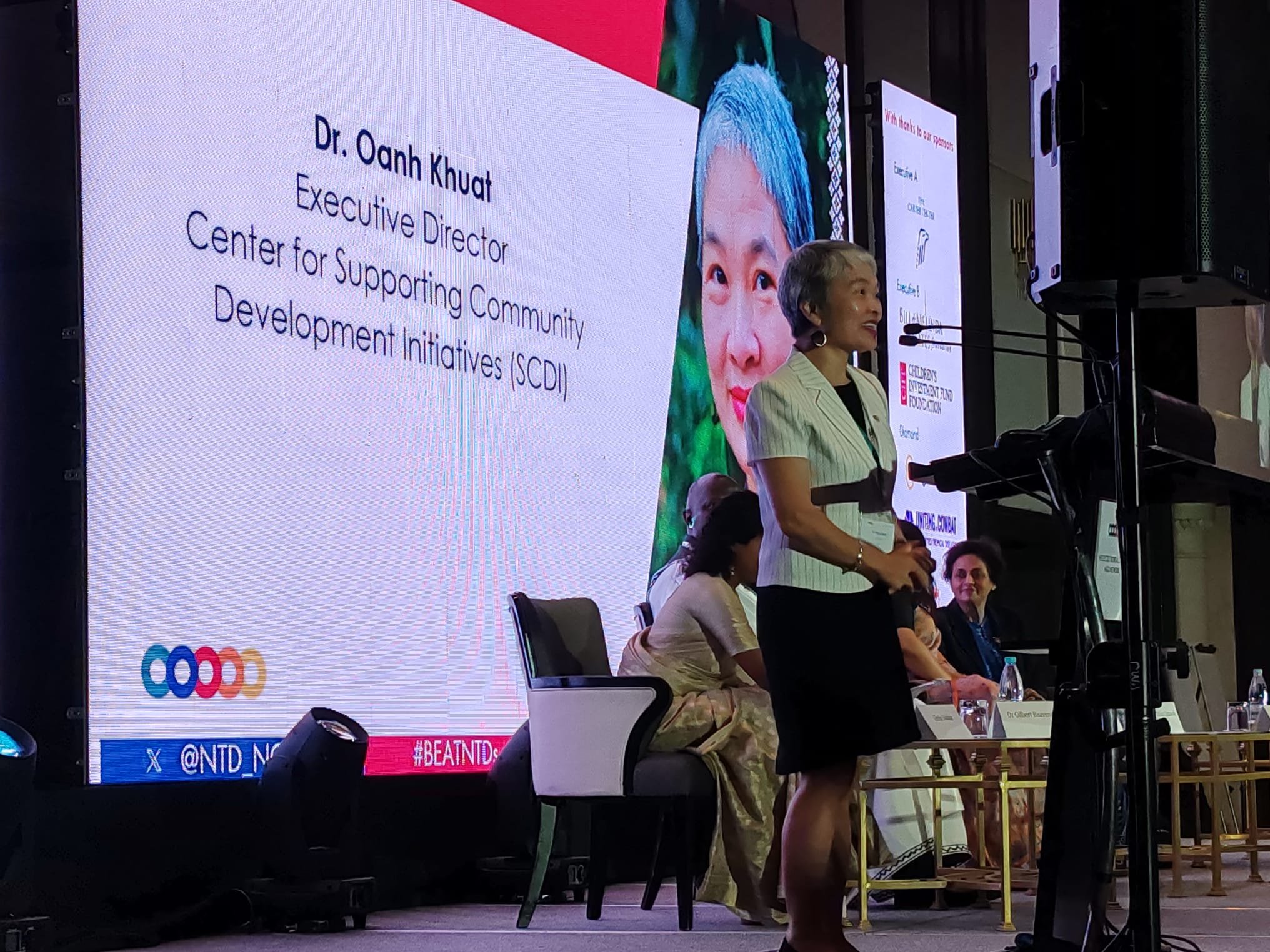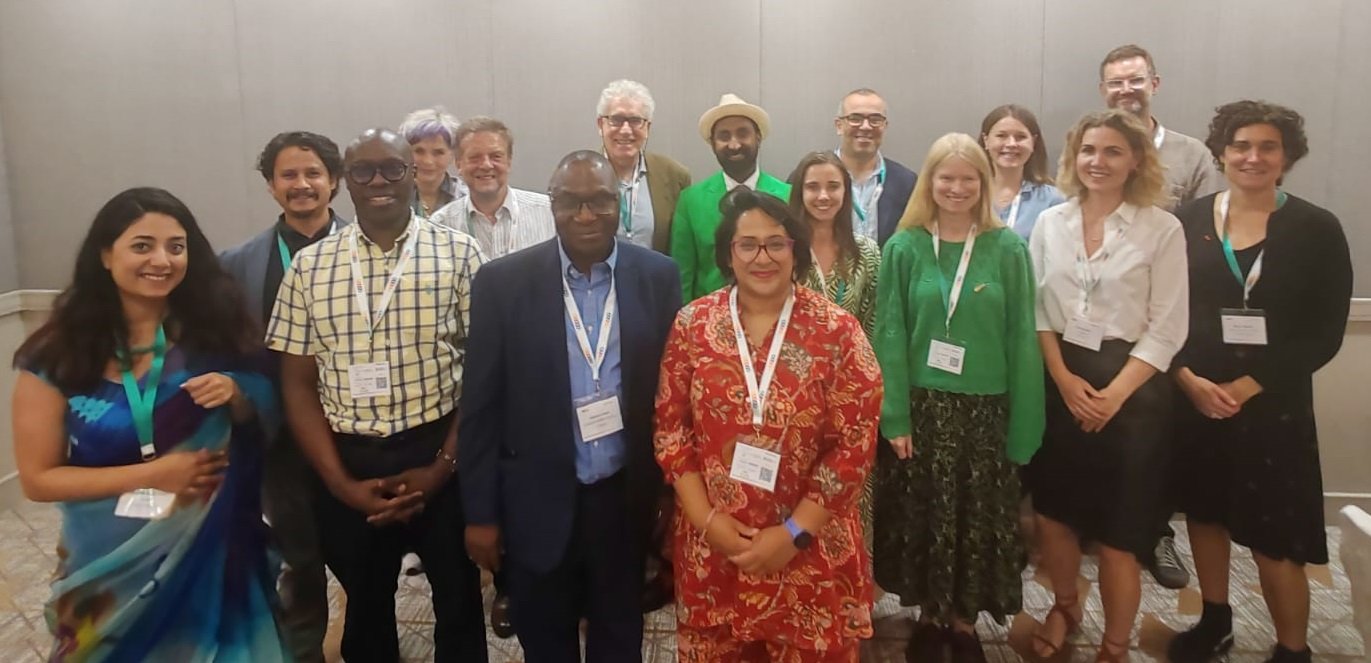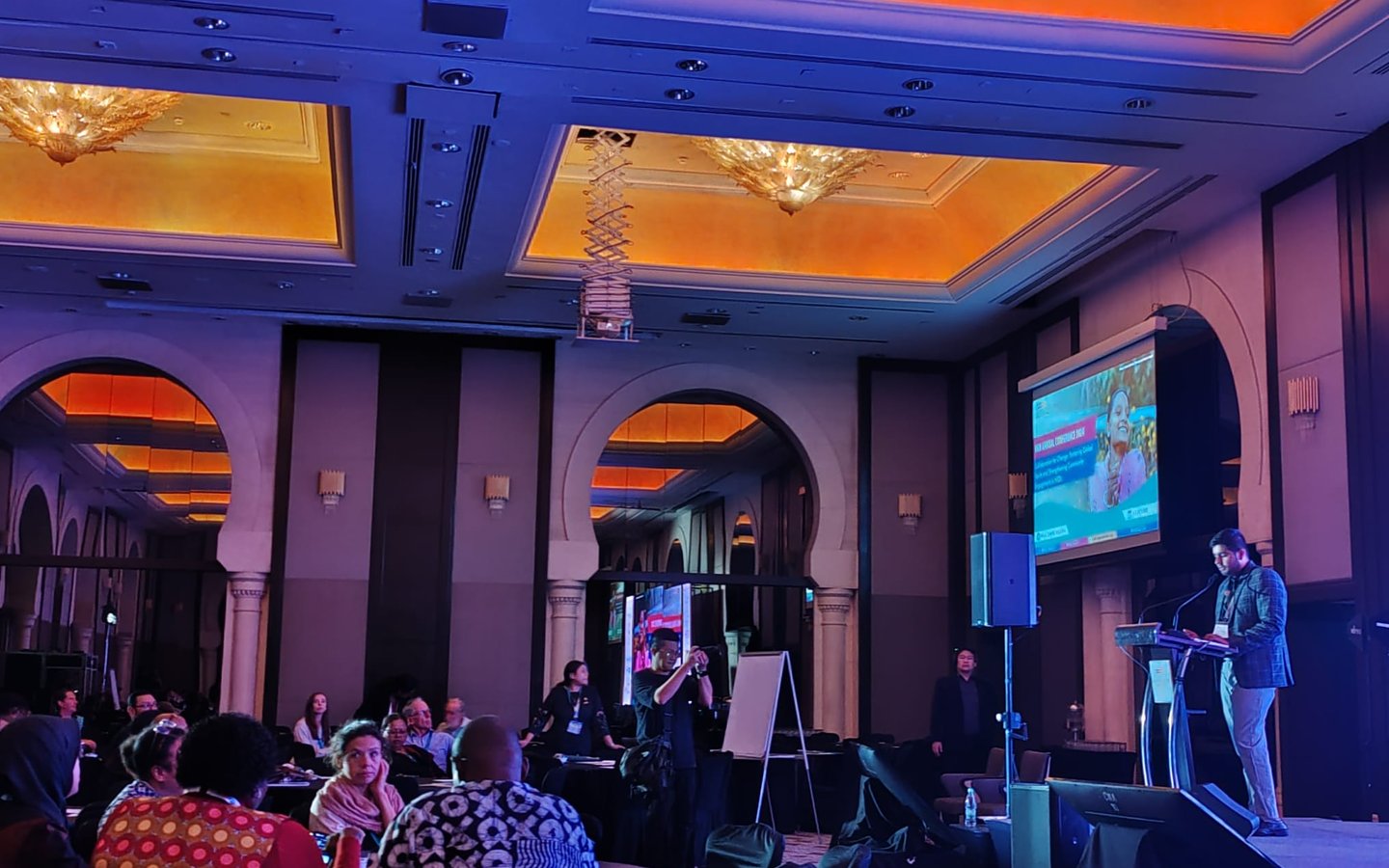The 2024 NTD NGO Network (NNN) Conference in Kuala Lumpur, Malaysia, brought together global leaders, advocates, and stakeholders to advance the mission of eliminating neglected tropical diseases (NTDs). This year's conference was marked by key themes such as country-level advocacy, youth engagement, the media’s pivotal role in shaping health narratives, the digital transformation of health systems, and the sustainability of NTD programs. The insights shared during the event underscored both the strides made and the challenges that persist in the fight against NTDs.

Advocacy and Sustainability: Country-Level Efforts
Advocacy emerged as a central theme throughout the conference, with a particular focus on national-level efforts. Dr. Khuat Thi Hai Oanh, from Supporting Community Development Initiatives (SCDI) Vietnam, captured the essence of this message when she emphasized,
“Advocacy at a country level is critical.”
Her statement echoed across sessions, underscoring the crucial role that localized, targeted advocacy plays in driving the elimination of NTDs. Advocacy is crucial for neglected tropical diseases because it raises awareness, mobilizes resources, and drives policy changes, ensuring that these often-overlooked conditions receive the attention and funding needed to improve prevention, treatment, and care for affected populations.

A recurring call was made for the inclusion of civil society organizations (CSOs) in the sustainability of NTD programs. Dr. Francisca Olamiju, Executive Director of Mission to Save the Helpless (MITOSATH), stressed the importance of amplifying grassroots voices in decision-making forums like the NNN. By incorporating community leaders into the dialogue, NTD programs can become more resilient and better attuned to local needs.
However, the global community faces significant challenges in maintaining financial support for NTD initiatives. The reduction in official development assistance, coupled with rising debt burdens and other fiscal constraints, has made long-term program sustainability increasingly challenging. These discussions underscored the urgent need for alternative funding models and stronger global partnerships
Progress Toward NTD Elimination: Success Stories
Several countries showcased notable progress in their NTD elimination efforts, serving as models for others:
Zimbabwe is on the cusp of eliminating trachoma, with expectations of completion by 2025 or early 2026. This achievement stands as a beacon of hope, illustrating how coordinated national strategies can deliver life-changing health outcomes.
Togo has eliminated four NTDs and shared its innovative approach to reaching remote communities through mass drug administration (MDA). Their strategies, successfully implemented in challenging terrains like Côte d'Ivoire and Sierra Leone, provided invaluable lessons for other nations grappling with similar obstacles.
These success stories highlight the power of localized solutions in tackling global health challenges, offering blueprints for future NTD elimination efforts worldwide.
Media and Advocacy: Amplifying the Narrative on NTDs
The media’s influence on global health narratives was another focal point of the conference. As RTI highlighted, the lessons learned from media coverage during crises like the COVID-19 pandemic can and should be applied to NTDs. Accurate, timely reporting is essential in fostering public understanding and engagement.
In this context, USAID’s Liz Eddy introduced an upcoming Journalist’s Guide for Reporting on NTDs, designed to empower journalists to produce informed and impactful coverage on these diseases. This guide is expected to combat sensationalism, promote factual reporting, and elevate the visibility of NTDs on the global stage.
Ethical storytelling is crucial in the context of NTDs as it ensures that the voices and experiences of affected communities are represented with dignity and respect, avoiding harmful stereotypes and promoting a deeper understanding. This approach is especially useful for advocacy, as it helps build authentic narratives that empower communities, foster trust, and drive more impactful, sustainable change.
The Ethical Storytelling workshop, hosted by the NNN Communications Working Group, was a resounding success. Attendees praised the innovative approach to shifting perspectives on communication and storytelling within the global development sector. The workshop focused on key topics such as the dangers of a single narrative, empowering imagery, the power dynamics at play in storytelling, and the importance of cultural sensitivity. At the workshop, Brigitte Perenyi, an award-winning documentary producer and advocate, shared her journey which highlighted the importance of dignified, participatory storytelling. Her insights and the workshop’s emphasis on story ownership, ongoing informed consent, and building authentic relationships left a lasting impact.
Youth Engagement: Paving the Way for the Future of NTD Advocacy
Youth networks took center stage at the NNN 2024 conference, driving home the message that the next generation has a vital role in shaping the future of NTD advocacy. Networks from Germany, Canada, and Japan are championing efforts to integrate NTDs into educational curriculums and foster relationships between young professionals and policymakers.
The German youth network, for example, underscored the need to strengthen advocacy within scientific and research communities. Meanwhile, PCI India, supported by the Gates Foundation, showcased how social media has been successfully leveraged to promote MDA and encourage public participation. This approach has proven effective in engaging young audiences and mobilizing collective action, setting a valuable precedent for other nations.
One of the most powerful moments of the conference came from Mulikat Okanlawon, a noma survivor and co-founder of Elysium. Her testimony underscored the importance of relentless advocacy:
“Noma is a preventable and treatable disease. I wish that the next generation doesn’t go through what we went through. Determination is the only solution.”
Her story provided a poignant reminder of the human impact of NTDs and the urgency of continuing the fight for their elimination.

Digital Transformation: Revolutionizing NTD Data Systems
The transition to digital health systems emerged as a game-changing force in the global effort to eliminate NTDs. WHO’s integrated digital platforms, such as DHIS2, are helping streamline NTD reporting and data collection, reducing the reliance on outdated paper-based methods. However, challenges remain, particularly in low-resource settings, where internet connectivity, data security, and setup costs (ranging between $15,000 to $25,000) pose significant hurdles.
Countries like Liberia and Kenya are leading the charge, training Community Health Assistants (CHAs) to use mobile devices for real-time data collection. These digital tools have proven critical in improving MDA efficiency and enhancing health outcomes, marking a pivotal shift in how NTD programs are managed and monitored.
International Collaboration and National Networks
Collaboration across national borders was a recurring theme throughout the conference, with national coalitions from Germany, Canada, Italy, and the UK sharing their experiences in advocating for NTD elimination. These coalitions are working to strengthen relationships with policymakers, MPs, and senators, all of whom play a vital role in securing funding for NTD programs.

Canada’s contribution to the Kigali Declaration and its $15 million commitment to fund the elimination of trachoma through PAHO underscores the country’s leadership in global health. However, like many other nations, Canada faces ongoing challenges in securing long-term parliamentary support for NTD programs.
Community and Patient-Centered Approaches
Finally, the conference underscored the importance of placing patients at the center of NTD interventions. A significant focus was on the treatment of Female Genital Schistosomiasis (FGS), with Frontline AIDS advocating for a holistic approach that integrates sexual and reproductive health services with NTD care. This patient-centered model seeks to address the broader health needs of affected individuals, aligning with global efforts to promote comprehensive, person-centered care.
Looking Ahead
The NNN 2024 conference showcased the remarkable progress made in the fight against NTDs while bringing into sharp focus the challenges that remain. Advocacy, youth engagement, media influence, and digital transformation were key themes that emerged, all underpinned by the need for sustainability and international collaboration.
As the global health community continues to push toward the elimination of NTDs, the lessons learned, and the momentum built at NNN 2024 will serve as catalysts for future success. The NNN platform remains at the forefront of innovation and knowledge-sharing, driving the world closer to the ultimate goal: a world free of neglected tropical diseases.
